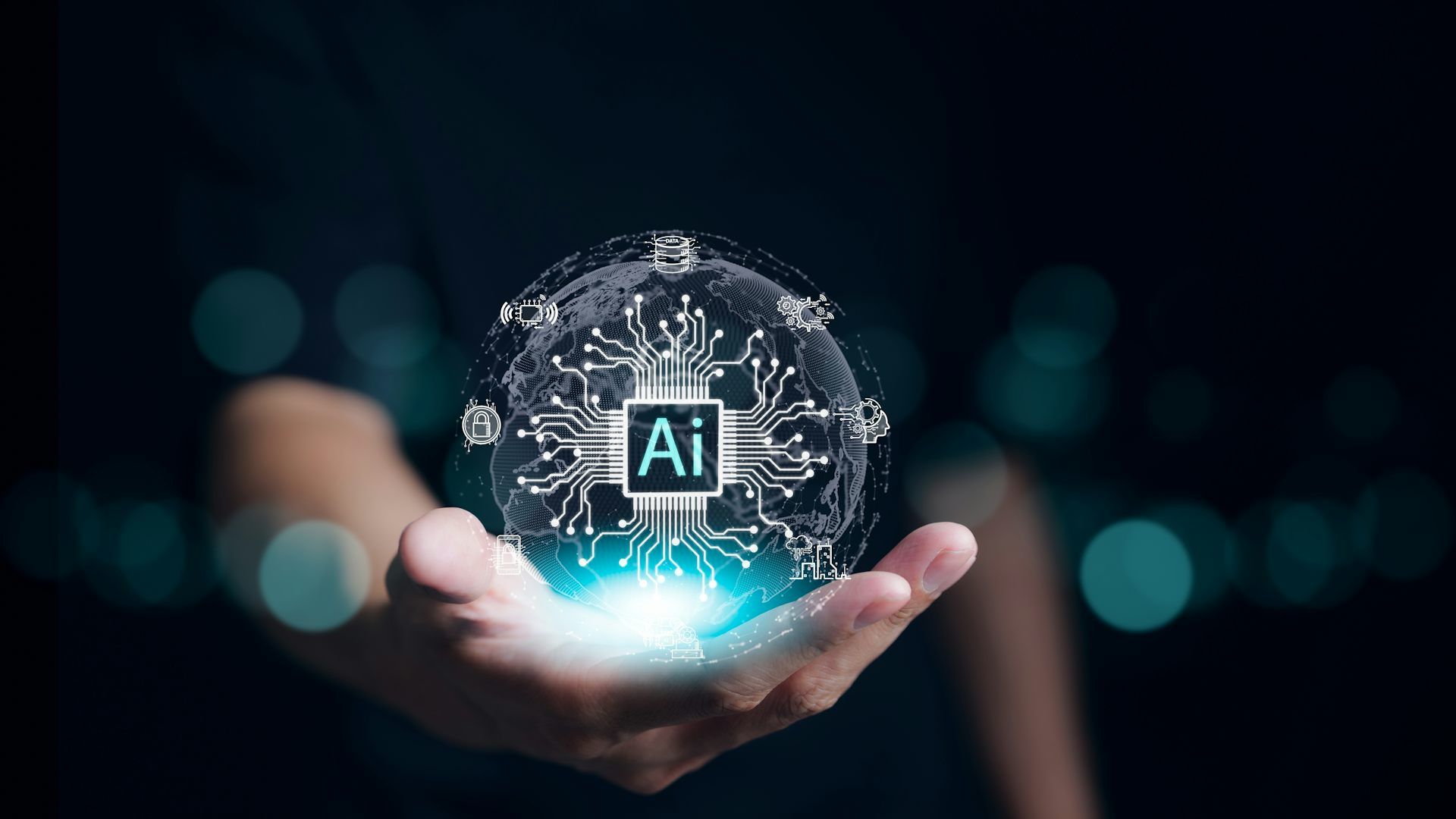We may make money when you click links to our partners. Discover more.

What is artificial basic intelligence (AGI), and why does it matter? As one of the most talked-about topics in innovation today, it has sparked a race amongst leading business like OpenAI and Google to turn this advanced concept into reality. Understanding AGI is necessary since it has the possible to revamp markets, impact our society in profound methods, and alter the method we communicate with technology. Here's what you need to learn about what it might be able to do, how it may transform markets and fields, and the substantial obstacles facing its development.

KEY TAKEAWAYS
• AGI differs from traditional AI in key methods that it would have the ability to think, discover on its own, and adjust to new obstacles like people unlike standard AI, which is developed for specialized tasks and runs within a restricted scope. It requires human beings to upgrade and fine-tune capabilities. (Jump to Section).
• Once it comes true, AGI would be able to make exceptional advances in numerous fields, consisting of health care, research, and finance sectors. (Jump to Section).
• Creating AGI is hard due to the research challenges that include technical, ethical, and social issues. Addressing these obstacles is main to keeping the safe and positive development of this technology. (Jump to Section)
Featured Partners: Artificial Intelligence Software
Find out more
TABLE OF CONTENTS
What is Artificial General Intelligence (AGI): A Clear Definition.
Understanding AGI vs Traditional AI.
Potential Applications of Artificial General Intelligence.
Challenges in Artificial General Intelligence Research.
3 Introductory AGI Courses to Consider.
Frequently Asked Questions (FAQs).
Bottom Line: Why Knowing What Is Artificial General Intelligence Matters.
What is Artificial General Intelligence (AGI): A Clear Definition
Artificial basic intelligence, or AGI, describes a kind of synthetic intelligence (AI) that can interpret, discover, and perform any cognitive job that a human can do. Unlike today's AI, which is developed to deal with specific tasks like recommending products or processing data, AGI would have the ability to adjust to brand-new obstacles and use knowledge throughout different fields. In other words, this innovative type of AI would believe and reason like a human. While AGI holds fantastic potential, it deserves noting that it is still a concept today, without any completely established systems available yet.
Key Capabilities of Artificial General Intelligence
AGI would have a variety of capabilities that mimic human intellectual functions, so it can carry out tasks beyond the narrow focus of the current AI tools in the market. Some crucial capabilities consist of the following:
Human-Like Reasoning: The innovation would be able to comprehend and make choices the way human beings do. It would think seriously, fix problems, and come up with services based upon its own experiences and past interactions, similar to how we apply previous understanding to new situations.
Solving Unfamiliar Problems: One of AGI's strengths is its potential to tackle new problems. Unlike conventional AI, which is trained to carry out specific jobs, AGI would have the capability to manage issues it hasn't been straight trained to solve. It could determine how to approach an entirely brand-new challenge, similar to human beings do when confronted with something we've never ever experienced before.
Self-Learning and Adapting: AGI might tweak its skills and learn from experience, without the need to be by hand upgraded every time. It would observe and examine information, gain from mistakes, and discover better methods to complete tasks over time. This indicates AGI could adapt to new situations and get much better at tasks by itself.
Using Knowledge Across Different Areas: AGI would be able to take what it finds out in one area and apply it to other jobs. For example, if it learned how to fix mathematics problems, it could utilize that understanding to deal with obstacles in other fields, like science or company. The capability to transfer abilities across various areas is something human beings do naturally and would make the technology versatile in varied sectors.
Understanding and Responding to Emotions: Recognizing and reacting to human emotions would also be within AGI's capabilities. This would be very important in settings where understanding people's sensations matters, such as healthcare, consumer service, or social circumstances. By reacting to feelings appropriately, AGI would be much better equipped to deal with human beings in an effective method.
Understanding AGI vs Traditional AI
The table listed below offers a picture of the significant distinctions in between AI and traditional or narrow AI by underscoring their abilities, versatility, and present status.
AGI would have the capability to think, discover autonomously, and adapt to brand-new obstacles like humans. However, it is still theoretical and has not been realized yet. On the other hand, traditional AI is developed for specific jobs and runs within a repaired scope. It can not adjust to new jobs without human input.
For example, an AGI might find out to detect medical conditions, then use that knowledge to establish individualized treatment plans-and even change its technique based upon the client's development. Additionally, it might use this problem-solving capability to tasks in entirely various fields, such as creating business techniques or encouraging on ecological preservation. On the other hand, standard AI, like a diagnostic tool, can only evaluate medical data for particular conditions. It can not adjust to other locations or improve on its own.
Potential Applications of Artificial General Intelligence
While AGI isn't here yet, its potential applications cover many fields and hold fantastic pledge of extreme developments in lots of sectors. Without being restricted to particular jobs like narrow AI, AGI would be highly versatile and might apply its abilities to fix multi-disciplinary problems. It could get rid of challenges currently beyond the capabilities of existing AI applications.
Transforming Healthcare
AGI would change the video game in health care by detecting complex and unusual diseases with greater precision, even in cases where symptoms are ambiguous or overlap with multiple conditions. It could develop extremely individualized treatment strategies by studying client history, hereditary information, and real-time health information. In addition, AGI could speed up drug discovery, determining possible treatments in weeks instead of years by processing huge datasets and running predictive simulations.
Advancing Scientific Research
In scientific research study, AGI would have the ability to simulate experiments, analyze complex datasets, and produce hypotheses. It could speed up developments in quantum physics, genomics, and climate science. By integrating knowledge from various domains, the innovation could uncover connections and options that might otherwise go unnoticed by conventional AI.
Improving Industry
Organizations in the commercial field could utilize AGI to enhance effectiveness in real-time by handling entire supply chains. It would predict and solve disturbances before they happen. In production, it might supervise autonomous factories, enhancing production processes while preserving safety and quality standards. Its capability to adapt to altering situations would make it a vital tool in commercial environments.
Enhancing Business Strategy
AGI could enhance service decision-making by examining market trends, consumer habits, and functional data to discover opportunities and risks. In contrast to narrow AI systems, AGI would innovate options to tough business problems, such as handling financial unpredictability or forecasting long-lasting market shifts. Its ability to gain from diverse sources would empower organizations to stay competitive.
Redefining Finance
In the monetary sector, AGI could increase forecasting precision by discovering patterns in vast amounts of monetary data, so investors and institutions can make educated decisions. It would also be able to identify fraud in real-time by recognizing subtle anomalies that standard AI systems might miss. Additionally, rocksoff.org AGI could develop more robust monetary designs, considering complicated variables and circumstances to mitigate dangers.
Challenges in Artificial General Intelligence Research
Developing AGI is among the most enthusiastic goals in innovation, however it features numerous troubles. These difficulties include technical, ethical, and societal locations, making AGI development an elaborate and multi-faceted procedure. Overcoming the following obstacles is identical to guaranteeing security, maintaining ethical requirements, and carefully planning how AGI's intro and use will impact people, industries, and society as a whole:
Making AGI Truly Flexible: AGI would require to manage a vast array of issues and adjust to new circumstances, similar to people. Building a system of flexibility is extremely difficult since current AI tools are not developed to believe or learn at this level of elegance.
Massive Computing Needs: To replicate human intelligence, AGI would need huge amounts of computing power to process details from varied sources quickly. Determining how to make such systems effective and efficient enough for real-world usage is a significant obstacle.
Understanding Human Intelligence: We do not totally comprehend how human thinking works, particularly complex aspects like instinct or consciousness. Without this understanding, it's challenging to develop makers that can imitate human-like thinking.
Making AGI Safe and Ethical: AGI could potentially be misused, like to create prejudiced systems or damaging tools like autonomous weapons. Researchers need to make sure that AG is built properly and follows stringent ethical guidelines. This is a tricky task that demands global partnership.
Keeping It Under Control: There's a danger AGI could act in ways we don't anticipate, particularly because it would have the capacity to learn and alter in time. Ensuring that these systems remain lined up with human worths and are safe to utilize is among the biggest obstacles in AGI research study.
Effect on Jobs and Society: If AGI comes true, systemcheck-wiki.de it could replace jobs or trigger economic inequality by benefitting some groups more than others. Getting ready for these social impacts is just as essential as constructing the innovation itself.
High Costs and Resources: Researching AGI requires a lot of cash, time, and expert understanding. Not all organizations have these resources, decreasing development and leaving smaller businesses out of the race.
3 Introductory AGI Courses to Consider
Familiarizing yourself with AGI can give you a competitive edge, whether you want to advance your career in AI or merely wish to stay notified about emerging technologies. The following introductory courses can assist you gain a much deeper understanding of what artificial basic intelligence is, so you can solidify your knowledge about this promising AI improvement.
Artificial General Intelligence (AGI): An Introductory Course on Udemy
This Udemy course provides an essential understanding of AGI, appropriate for newbies without any prior experience. The course covers pertinent subjects, including the foundations of AI, the essentials of AGI, and the current patterns in the field. It also explores the advantages, threats, and challenges connected with AGI, equipping you with insights into what the innovative innovation can achieve. The whole course includes 15 lectures and can be completed in approximately 45 minutes. Upon completion, you will receive a certificate to bolster your qualifications in the job market. This introductory course costs $24.99.
Intro to Artificial General Intelligence (AGI): Future of AI on Udemy
Udemy's introductory course uses a detailed overview of AGI for students without any technical background. It goes over the historical context and foundation of AGI, the distinctions between narrow AI and AGI, and ethical considerations surrounding its advancement. In addition, it deals with future trends in AI and AGI, shedding light on the obstacles and chances that lie ahead. Spanning one hour and 46 minutes, the course includes 39 lectures, on-demand video, and downloadable resources. It likewise has a dry run at the end to reinforce your understanding. You will be granted a certificate as soon as you finish the course. It is available as part of Udemy's premium strategies, starting at $20 each month, or as a different purchase of $49.99.
Artificial General Intelligence (AGI) on Udemy
This Udemy course brings a clear and concise intro to the topic, with on-demand videos and 22 lectures. It elaborates on major AGI concepts and the function of robotics in AGI development. It likewise examines the ethical, software, and hardware difficulties in creating AGI. The course supplies quizzes to check your understanding and a certificate of completion. Priced at $44.99, it is made for students at any level, making it available and important for anyone who wishes to find out more about AGI.
Frequently Asked Questions (FAQs)
Achieving AGI could transform industries, enhance decision-making, and cause substantial advancements in technology. However, it also raises issues about principles, task displacement, and the requirement for appropriate guideline to make sure it is established safely and responsibly.
Experts disagree on how far we are from attaining AGI. Sam Altlman of OpenAI thinks in 2025, AI representatives may sign up with the workforce, eventually leading the way to AGI development. On the other hand, a study of AI scientists puts the typical quote around 2047. Despite quick AI developments, existing systems are still limited to narrow jobs and do not have the broad, flexible reasoning of humans-so AGI is likely still decades away.
The idea of AGI fully changing human beings is still debated. Despite the fact that it's most likely that AGI will assist us by taking control of repeated tasks, there is a possibility that it might displace specific jobs. That said, instead of entirely replacing humans, AGI is anticipated to work alongside us, handling technical obligations while we concentrate on jobs that need creativity and compassion. At the end of the day, the results of AGI will depend upon how society selects to manage and integrate it.

Bottom Line: Why Knowing What Is Artificial General Intelligence Matters
Understanding synthetic general intelligence is imperative since this innovation might alter industries, resolve tough problems, and change how we utilize AI. But as we begin to establish AGI, we should thoroughly address a number of obstacles, including technical issues, ethical issues, and its overall effect on society. By learning more about AGI's potential and dangers, we can pursue making certain it is produced properly and utilized in manner ins which would benefit everybody.









